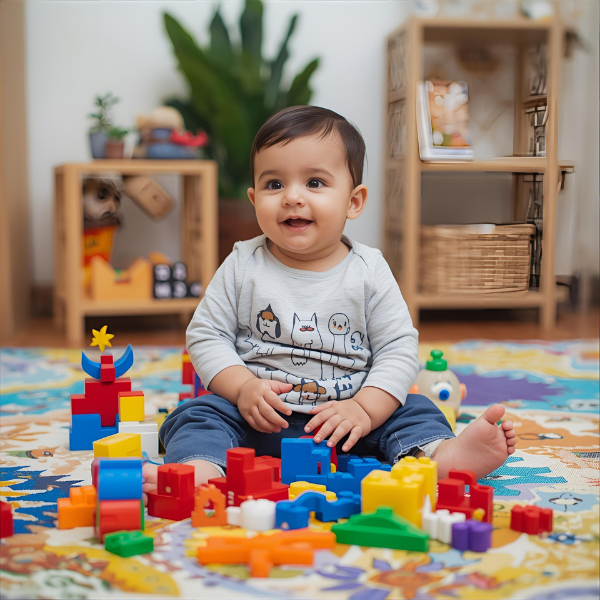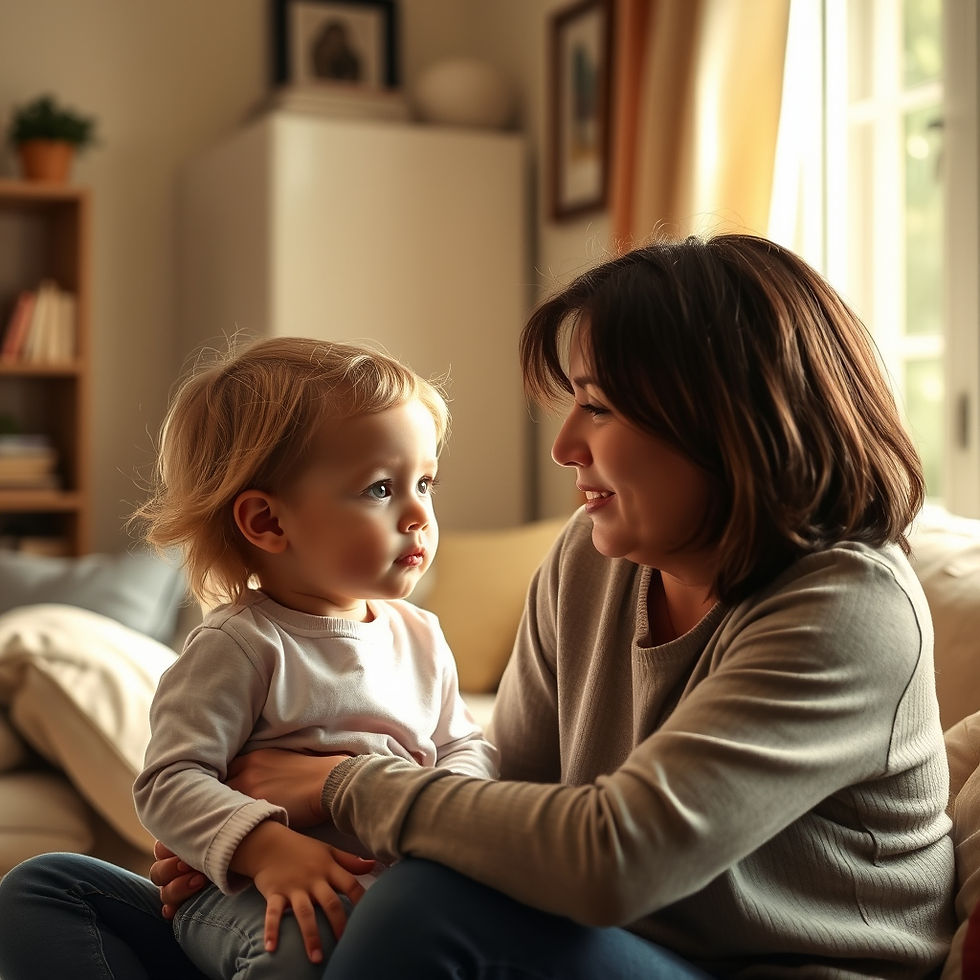Your Baby’s Brain on Play: Why Free Play Is Serious Business
- kriscainlcpc
- Aug 29, 2025
- 3 min read

If you’ve ever watched a baby bang two blocks together, giggle at a game of peek-a-boo, or crawl after a rolling ball, you might think they’re simply passing the time. But here’s the truth: every playful moment is hard work for their growing brain.
Play isn’t just fun — it’s a building block of development. Neuroscience tells us that play stimulates connections in the brain that support learning, problem-solving, emotional regulation, and even social skills. For babies and toddlers, free play is the foundation on which lifelong learning is built.
At Building Bright Futures (BBF), we know that play is serious business. Let’s break down the science of play and highlight the types of play we encourage in our programs and groups.
The Science of Play: Wiring the Brain for Learning
During the first three years of life, a baby’s brain forms more than 1 million new neural connections every second. That’s faster than at any other time in their life. Play is one of the most effective ways to strengthen and organize those connections.
Here’s what happens when your baby plays:
Sensory Experiences Light Up the Brain. When babies touch different textures, hear new sounds, or watch bright colors, multiple areas of the brain activate at once.
Repetition Builds Pathways. Every time they stack blocks or shake a rattle, their brain strengthens the “wiring” for those skills.
Problem-Solving Sparks Growth. When a toy doesn’t fit into a box or a puzzle piece won’t slide in, babies experiment, adjust, and learn persistence.
Play Reduces Stress. Laughter and joyful movement release chemicals that soothe the body and promote healthy emotional regulation.
Put simply: play is how babies practice the skills they’ll need for school and beyond — without even realizing they’re learning.
Why Free Play Matters
While structured activities (like storytime or music class) are important, free play is where children take the lead. Free play happens when a child chooses what to play and how to play it, without adults directing every step.
Why is this so valuable?
Boosts Creativity: Kids learn to invent games, imagine stories, and explore possibilities.
Encourages Independence: Babies gain confidence by making choices and experimenting.
Supports Self-Regulation: Choosing when to start, stop, or shift activities teaches control and decision-making.
Strengthens Relationships: When adults follow a child’s lead in play, it builds trust and connection.
At BBF, we encourage caregivers to let children explore freely, even if it means things get a little messy. That’s where the magic happens.
Types of Play BBF Encourages
Different types of play spark different areas of growth. Here are a few we love:
1. Sensory Play
Exploring textures, sounds, and sights helps babies make sense of the world. Think: water play, squishing playdough, or feeling fabrics. Our Take-Home Kits often include sensory-friendly activities that boost this kind of learning.
2. Physical Play
Tummy time, crawling through tunnels, or dancing to music builds coordination, balance, and strength. Physical play also supports brain development by connecting movement with learning.
3. Social Play
Even before babies can talk, they practice communication through games like peek-a-boo, clapping, or mimicry. Social play lays the groundwork for language development and empathy.
4. Pretend Play
Toddlers especially love pretend play — cooking with toy pots, feeding dolls, or pretending to be animals. Pretend play helps children understand roles, emotions, and imagination.
5. Constructive Play
Building towers, sorting objects, or putting together simple puzzles teaches problem-solving and spatial awareness. Babies might start with banging blocks together, while toddlers begin stacking and organizing.
The Role of Adults in Play
Parents and caregivers don’t need to orchestrate every moment. In fact, your most important role is to observe, encourage, and join in when invited. Sit on the floor, make eye contact, smile, and follow your child’s lead. These simple actions strengthen not just the brain, but also your bond.
And remember: your home doesn’t need to look like a toy store. Everyday objects — pots, spoons, cardboard boxes — can become the best tools for play.
Play Today, Thrive Tomorrow
When you give your baby space for free play, you’re doing much more than filling the hours. You’re helping wire their brain for future success, creativity, and resilience.
At Building Bright Futures, we’re passionate about supporting families with playful learning. From group activities and workshops, we provide tools to make play meaningful and fun. Because when children play, they’re not just having fun — they’re building their brightest future.




Comments